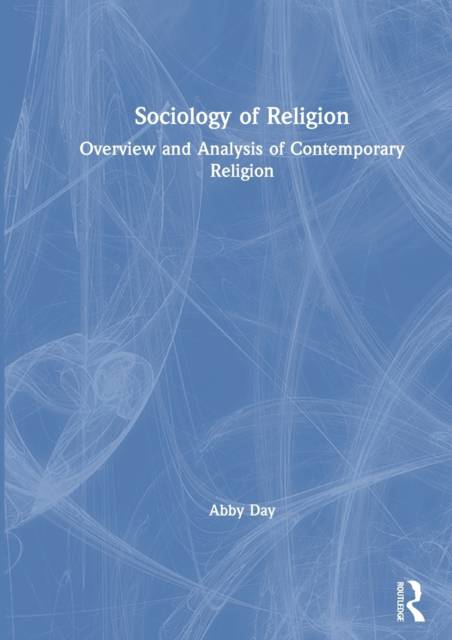
- Afhalen na 1 uur in een winkel met voorraad
- Gratis thuislevering in België vanaf € 30
- Ruim aanbod met 7 miljoen producten
- Afhalen na 1 uur in een winkel met voorraad
- Gratis thuislevering in België vanaf € 30
- Ruim aanbod met 7 miljoen producten
Omschrijving
The first sociology of religion textbook to begin the task of diversifying and decolonizing the study of religion, Sociology of Religion develops a sociological frame that draws together the personal, political and public, showing how religion - its origins, development and changes - is understood as a social institution, influenced by and influencing wider social structures.
Organized along sociological structures and themes, the book works with examples from a variety of religious traditions and regions rather than focusing in depth on a selection, and foregrounds cultural practice-based understandings of religion. It is therefore a book about 'religion', not 'religions', that explores the relationship of religion with gender and sexuality, crime and violence, generations, politics and media, 'race', ethnicity and social class, disease and disability - highlighting the position of religion in social justice and equality.
Each chapter of this book is framed around concrete case studies from a variety of Western and non-Western religious traditions. Students will benefit from thinking about the discipline across a range of geographical and religious contexts. The book includes features designed to engage and inspire students:
- Up-to-date and comprehensive analysis of engaging and accessible material
- 'Case Examples' short summaries of empirical examples relating to the chapter themes
- Visually distinct boxes with bullet points, key words and phrases focusing on the context
- Questions suitable for private or seminar study
- Suggested class exercises for instructors to use
- Suggested readings and further readings/online resources at the end of each chapter
Following a review and critique of early sociology of religion, the book engages with more contemporary issues, such as dissolving the secular/sacred binary and paying close attention to issues of epistemology, negotiations, marginalities, feminisms, identities, power, nuances, globalization, (post) (multiple) modernity (ies), emotion, structuration, reflexivity, intersectionality and urbanization. This book is essential reading for undergraduate and postgraduate students exploring the sociology of religion, religion and society, religious studies, theology, globalization and human geography.
Alleen bij Standaard Boekhandel
Beoordelingen
We publiceren alleen reviews die voldoen aan de voorwaarden voor reviews. Bekijk onze voorwaarden voor reviews.










